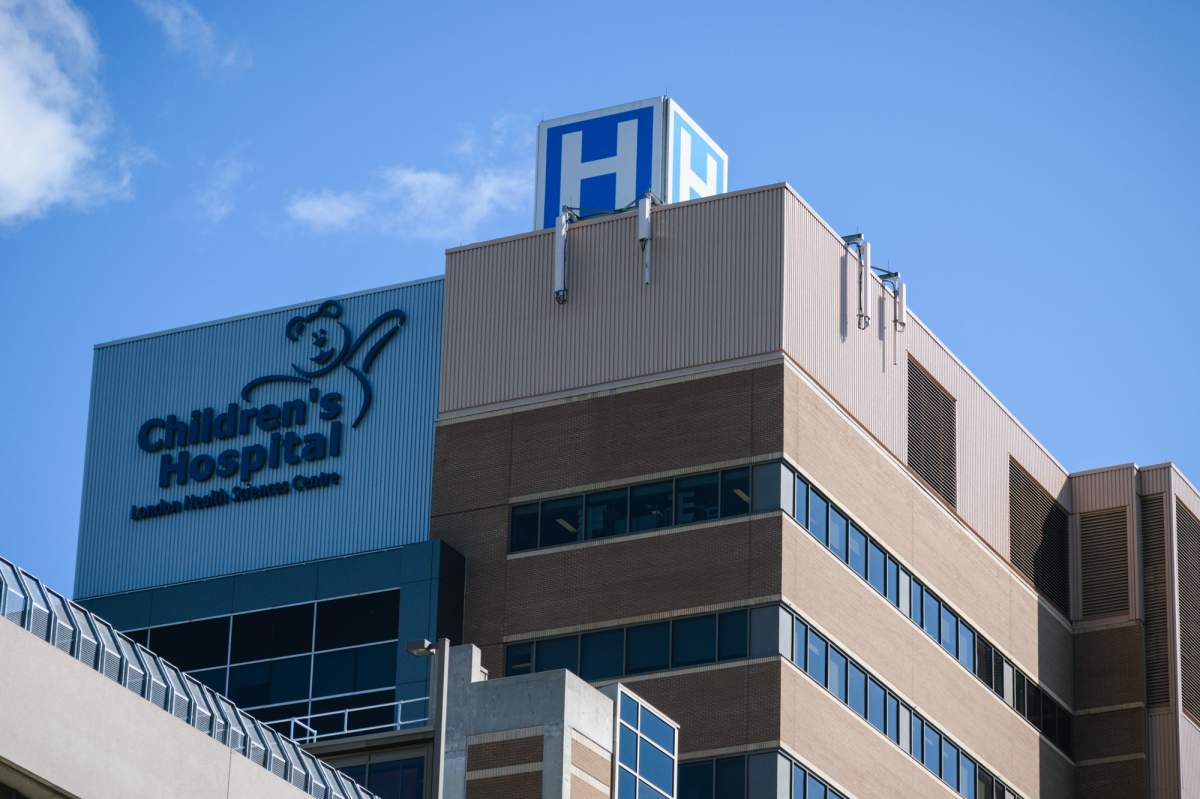While the Ontario Ministry of Health continues to monitor the epidural kit shortage seen across western provinces, local hospitals are making plans for the future in continuing to provide pain management options for expectant mothers.

“An epidural catheter kit is a device to deliver medication to the epidural space to give pain relief to women who are in labour,” explained Tracy Crumley, chief of obstetrics and gynecology at London Health Sciences Centre (LHSC).
“It can also be used for other settings; certain surgical procedures where they are in certain areas that are difficult to control a traditional pain medication, so non-pregnant people may use it. But we (the obstetrics and gynecology department) are the biggest users of epidurals in the hospital.”
According to the Ontario Ministry of Health, the shortage is due to a supply chain issue from one component of the epidural catheter kit.
The Canadian Anesthesiologist Society has warned that the shortage could turn into a global supply chain problem.
While drastic effects have not been felt in Ontario as of yet, Crumley recalled her initial concerns on hearing the news.
“We’ve had supply chain issues throughout the pandemic, for a variety of things that people really are not quite as familiar with,” she said. “We’ve had shortages which we’ve managed to deal with but patients don’t know about it because they don’t feel that impact, whereas epidurals are such an important part of pain control when it comes to labour, everybody knows about them, and everybody’s afraid, ‘What if I don’t get to have one?’

Get breaking National news
“I’m in contact with the chairs of all the other departments across the country and pretty much every province has been affected, to some degree. Some are worse than others.”
Shortages of the epidural catheter kits have been confirmed in British Columbia, Alberta, Saskatchewan and Manitoba, with some eastern provinces such as New Brunswick starting to feel the effects as well.
Last month, LHSC said it was starting to feel the effects of an annual summer “baby boom,” with an average of 20 to 25 babies born each day in the hospital.
In the event the shortage spreads and affects the local hospital, Crumley said the first thing her team will do is maximize the available supply they currently have “so that (they) don’t have patients who don’t get their preferred choice of pain control.”
“So far, knock on wood, we have not had anybody at LHSC who has not received an epidural because of this shortage,” she said. “When it comes to other options for pain control, there are other options such as nitrous oxide gas, a patient-controlled analgesia machine where they press a button and get that medication through an IV.”
However, according to Crumley, the alternative options are not as effective from a pain control perspective compared with an epidural.
“But there are options that may be considered for some people who need better pain control than focused breathing and that sort of thing,” she said.
“We have a great team of people who are working very hard every day to make sure that we keep on top of what our current supplies are, and we have multiple parallel streams that are looking for a future supply so that we’re not kind of sitting and resting on what we’ve got in stock.
“We’re continuously looking for more supply so that our patients aren’t affected.”












Comments
Want to discuss? Please read our Commenting Policy first.